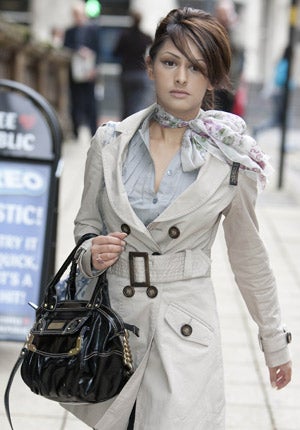It pays not to be too attractive – if you're a woman looking for a job

Your support helps us to tell the story
From reproductive rights to climate change to Big Tech, The Independent is on the ground when the story is developing. Whether it's investigating the financials of Elon Musk's pro-Trump PAC or producing our latest documentary, 'The A Word', which shines a light on the American women fighting for reproductive rights, we know how important it is to parse out the facts from the messaging.
At such a critical moment in US history, we need reporters on the ground. Your donation allows us to keep sending journalists to speak to both sides of the story.
The Independent is trusted by Americans across the entire political spectrum. And unlike many other quality news outlets, we choose not to lock Americans out of our reporting and analysis with paywalls. We believe quality journalism should be available to everyone, paid for by those who can afford it.
Your support makes all the difference.Looks matter if you want to get a job – but it may only help you if you're a handsome man rather than a pretty woman.
According to research presented at the Royal Economic Society's conference this week, good-looking women are being discriminated against by female recruiters. Attractive women are better off omitting their photograph from a CV since it decreases their chances of a getting a response by 20 to 30 per cent, the study found.
Two Israeli academics, Bradley Ruffle and Ze'ev Shtudiner, sent more than 5,000 CVs to over 2,500 advertised job openings. For each application they sent two CVs, one without a picture and the other containing a picture of either an attractive-looking man or woman or a plain-looking man or woman.
The economists found that 20 per cent of the attractive men received a response to their applications, compared with 14 per cent of men who did not include a picture and 9 per cent who had less-than ideal looks. However, attractive women were called to be interviewed for a position less often than both plain-looking women or women who had no picture on their resumé. Women who attached no picture to their CV were 22 per cent more likely to receive a response than women with a plain picture – and 30 per cent more likely than women with an attractive picture.
The researchers then conducted a post-experiment survey in which they spoke to the person at the company who screens candidates. That person was female in 24 of the 25 companies they interviewed. "Moreover, these women were young and typically single (67 per cent), qualities more likely to be associated with a jealous response when confronted with a young, attractive competitor in the workplace," the researchers wrote. "Indeed, the evidence points to female jealousy of attractive women in the workplace as a primary reason for their penalisation in recruitment." This helps to explain the double standard.
They added: "These findings on penalisation of attractive women contradict current psychology and organisational behaviour research on beauty, which associates attractiveness with almost every conceivable positive trait and disposition."
The economists worked in Israel because including a photograph with a job application is seen as normal there. Doing so is rare in Britain, which may be just as well for the more comely female job hunters.
Carmen Watson, managing director of recruitment at Pertemps Recruitment Partnership, said: "I'm not even aware of people putting their pictures on their CVs. I couldn't remember the last time we saw one. At the end of the day, we are looking for the right people for the right job and the right job for the right people, irrespective of gender."
When looks get in the way
* Prison officer Amit Kajla won a case for unfair dismissal against the Prison Service in 2009 after her boss criticised her for being "glammed up" and commented on her "snug-fitting" uniform.
The 22-year-old said she was forced to resign from HMP Brinsford, near Wolverhampton, after she was mocked by staff for adapting her clothing to fit her petite frame.
The tribunal ruling stated: "If she was not the young, attractive woman that she is, he would not have treated her in the way he did."
* Lawyers working for 33-year-old banker Debrahlee Lorenzana claimed she was fired by Citibank in New York because her bosses "couldn't handle their libidos".
She was told not to wear high heels because they drew attention to her figure and stopped the men around her from working, according to a lawsuit filed in June 2010. The case was eventually dismissed.
"I can't help it that I have curves," Ms Lorenzana said at the time, "and I'm not going to go eat and gain 50 or 100 pounds because my job wants me to be the same size as everyone else."
Join our commenting forum
Join thought-provoking conversations, follow other Independent readers and see their replies
Comments